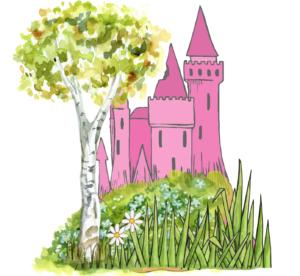Life isn’t usually the fairy tale that we all hoped for as children, and that’s okay.
Most of us are realists and never expected life to be Prince Charming, glass slippers and pumpkins that turn into carriages. (As cool as that would be.)
That doesn’t mean that we were hoping for nightmares, however. Sadly though, relationship troubles can certainly seem like a nightmare.
When the relationship isn’t perfect, or even going smoothly, and one partner passes away, the grieving process can be even more complex than it already is.
At least that’s how it’s been for me.
I have spent much more time processing the deep, painful problems in my marriage to my late husband, Bret, than I have his actual death.
Relatively soon after his death, I actually did the opposite and placed him on a pedestal high above the rest of us. It was as if he had achieved some level of sainthood.
I missed him more than life, and therefore looked back on every little thing with the proverbial rose colored glasses, chalking all of his dark and at times abusive behavior up to his mental illness.
(And while yes, his mental illness was the reason behind many things, it’s no excuse to treat someone badly. Help is out there for those who want it.)
Bret could be beyond wonderful. He was funny, talented, smart and incredibly charming. But he also had a dark side, and if you knew him very well, you were probably aware of this. Most people who knew him casually, really liked him but didn’t know that side of him; so some of what I say here might be a bit of a truth bomb.
I don’t speak of the frequent fights or of his darker side to speak ill of the dead and trash talk him. I do so to let others know that even if things weren’t perfect in your relationship, your grief is just as valid.
You’re allowed to miss the person that you loved.
You’re allowed to grieve what could have been and what you wished for.
I have forgiven Bret for his choice to leave life at his own hands, but I have had to work even harder at forgiving him for how he lived.
Yes, there were some amazing, good times and experiences that I am forever grateful for. But on the flip side of that coin, there were some pretty terrible ones as well, and they have been quite difficult to process.
I can’t speak for those who were widowed by anything other than suicide, but as a suicide widow, I have met many others who were in a similar boat. And so many, when fresh into the grieving process, didn’t realize how bad things actually were, until time passes and the fog starts to lift. (That’s how it was for me, too.)
It’s absolutely okay to be angry at them, and it’s okay if you were angry at them at the time of their passing. Anger is a valid emotion.
But do try to work alongside your anger, and allow it to be of assistance during your personal grief journey. Anger is not only valid, allowing yourself to feel it can actually be quite helpful.
We are taught from an early age not to be “angry people”, when in reality, it’s perfectly okay to acknowledge this often misunderstood emotion.
It will be four years for me, later this week, and this date doesn’t hurt as much as it did at first. Last year, on the date, I was really working through quite a bit of anger toward him, and this year, that’s not as ferocious as it was, either.
No matter what though, that day will always be acknowledged and he will always be missed. He wasn’t a terrible person, but he wasn’t that saint on a pedestal either.
Honestly, his death has taught me so many things, one being that you can still mourn someone with whom you had a strained relationship.
I have also learned just how powerful forgiveness is, because I am still working on that part.
But I’ll get there.
It just takes time.


